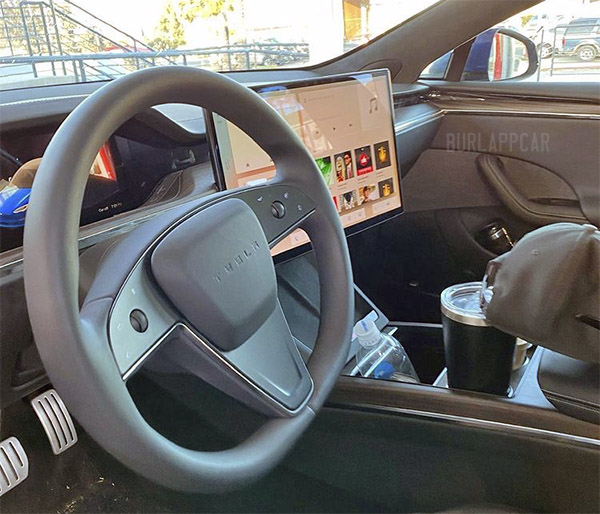In 2023, the electric vehicle (EV) market is buzzing with innovation, not least because of the stunning blend of artificial intelligence (AI) and autonomous technology. A recent report by Bloomberg Green highlights that the global EV market is expected to grow by 25% annually, with AI playing a pivotal role in this expansion. As AI continues to revolutionize the automotive industry, it’s clear that the intersection of AI, autonomous tech, and EVs is driving us towards a smarter, more sustainable future. This article will explore how AI and autonomous technology are transforming electric vehicles and what this means for the future of mobility.
The Role of AI in Enhancing Electric Vehicle Performance
AI is no longer a futuristic concept—it’s the backbone of today’s electric vehicles. From improving battery management to enhancing vehicle safety, AI is embedded in various aspects of EV performance.
Optimizing Battery Life and Efficiency
- AI-Driven Battery Management Systems (BMS): AI algorithms can predict battery life more accurately, optimizing charging cycles and preventing overcharging. According to Battery University, AI can extend battery life by up to 30%.
- Energy Consumption Prediction: AI systems use data from previous trips to predict energy consumption, enabling better route planning and energy efficiency.
Smart Navigation and Route Planning
- Dynamic Route Optimization: AI-powered navigation systems analyze real-time traffic data to suggest the most efficient routes, reducing energy consumption and travel time.
- Predictive Maintenance: AI can foresee vehicle maintenance needs, minimizing breakdowns and extending the life of the vehicle.
Autonomous Technology: Driving Innovation in Electric Vehicles
Autonomous technology is not just a concept for the future; it’s a reality shaping the present of electric vehicles. Companies like Tesla and Waymo are at the forefront, integrating self-driving capabilities into their EVs.
Levels of Autonomy in Electric Vehicles
According to the Society of Automotive Engineers (SAE), there are six levels of vehicle autonomy, ranging from Level 0 (no automation) to Level 5 (full automation):
- Level 0: No automation
- Level 1: Driver assistance
- Level 2: Partial automation
- Level 3: Conditional automation
- Level 4: High automation
- Level 5: Full automation
Currently, most electric vehicles are at Level 2 or 3, with companies racing to achieve Level 5.
Safety and Efficiency Benefits
- Collision Avoidance Systems: Autonomous technology uses AI to detect potential collisions and take preventive actions, significantly reducing accident rates.
- Fuel Efficiency: Autonomous driving can optimize speed and braking, leading to better energy efficiency and reduced emissions.
How AI and Autonomous Tech Are Reshaping the EV Market
The convergence of AI and autonomous tech is transforming the EV landscape in unprecedented ways.
Market Trends and Growth
- Increased Adoption: A study by Reuters Mobility indicates that by 2030, over 50% of new cars sold will be electric, many equipped with autonomous features.
- Global Leaders: Companies like Tesla, Rivian, and Nissan are leading the charge, investing heavily in AI-driven technologies to enhance their EV offerings.
Challenges and Considerations
- Infrastructure Development: The rise of autonomous EVs necessitates robust charging infrastructure and smart city planning.
- Regulatory Frameworks: As EVs become more autonomous, regulations need to evolve to address safety and ethical considerations.
Practical Tips for Embracing AI-Driven EVs
For consumers eager to explore the world of AI-driven electric vehicles, here are some practical tips:
- Where to Buy: Look for reputable brands like Tesla and Hyundai, which offer advanced AI and autonomous features.
- How to Charge: Utilize smart charging stations that can communicate with your vehicle to optimize charging times.
- What to Compare: Evaluate vehicles based on AI capabilities, battery life, and autonomous features to find the best fit for your needs.
Recommended Models with Advanced AI Features
- Tesla Model 3: Known for its Autopilot capabilities, offering partial self-driving features.
- Hyundai Ioniq 5: Features AI-driven navigation and smart charging systems.
- Lucid Air: Offers AI-enhanced battery management and luxurious autonomous driving experiences.
Conclusion: The Future of Mobility
As we look towards the future, AI and autonomous technology are set to revolutionize electric vehicles, making them smarter, safer, and more efficient. The integration of these technologies not only enhances the performance and sustainability of EVs but also propels us towards a future where mobility is more interconnected and intelligent.
Are you ready to embrace the future of electric vehicles with AI and autonomous technology? Share your thoughts and join the conversation on how these innovations are reshaping our world. With the rapid advancements in AI and autonomous tech, the road ahead for electric vehicles is not just electrifying—it’s truly revolutionary.

